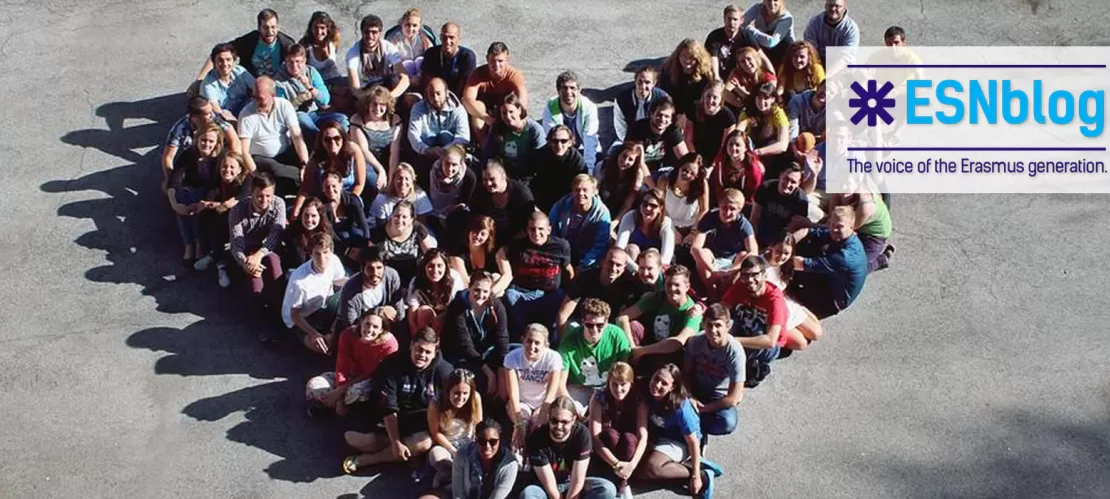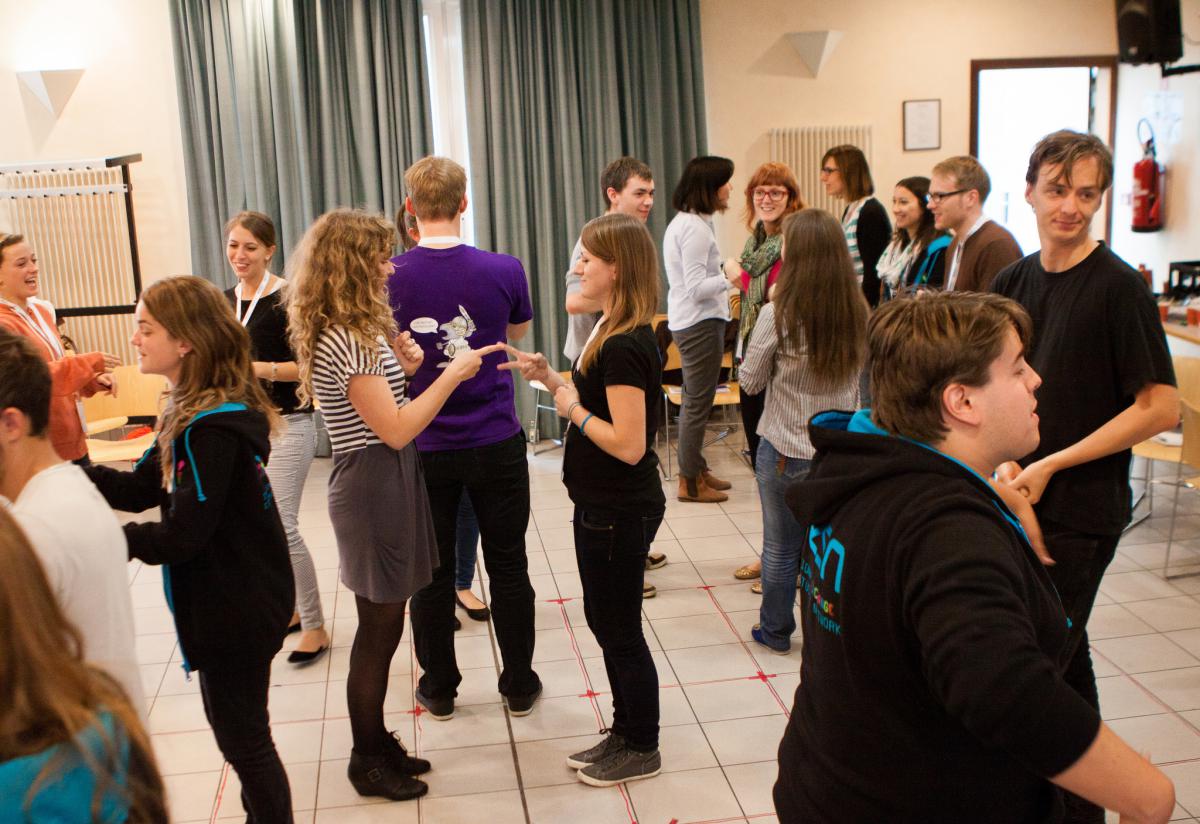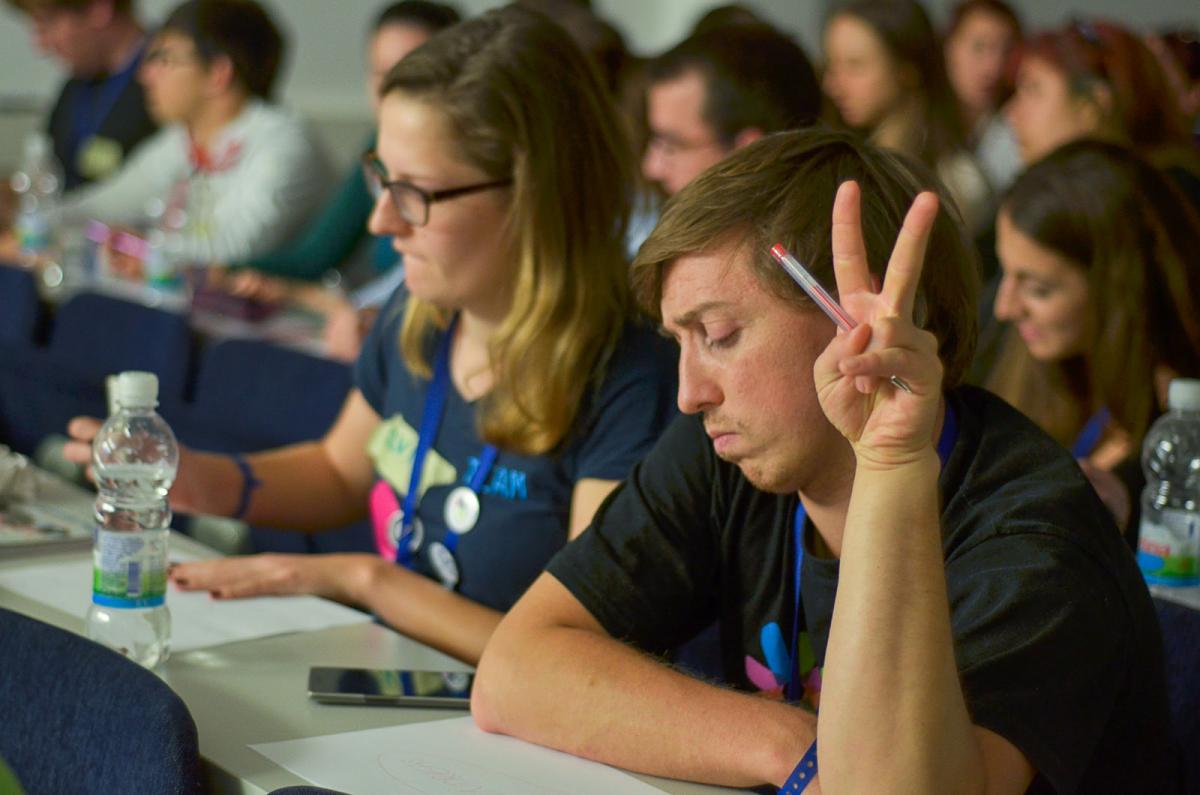
I have volunteered for ESN for years. During these years I have got to experience amazing moments and meet wonderful people. But it has also been stressful and tiring. I have rolled of laughter and I have burst into tears because of volunteering.
I am also a student of management and leadership and at the moment I’m finishing my master’s thesis on employee well-being, a topic that I find truly fascinating. In the last months I have had the opportunity to combine the roles of a volunteer and researcher together with a third one: being an Eduk8 trainer. I have held two workshops about wellbeing to a group of ESNers and got to know more about the state of wellbeing of our volunteers.
Volunteering and well-being
The starting point that we have found in both workshops is that well-being is crucial for voluntary work. Since volunteers don’t get paid for their work, it’s very easy to stop volunteering and move forward if it’s not making us happy.
We also noticed that even though participants felt rather good or even excellent in their voluntary work, little effort was paid to ensure the happiness of the volunteers. Most of the time that might not even be necessary since well-being stems from the nature of the association: helping others and making sure that they feel good in the new country. Even better, this is done together with a group of like-minded students and without much hierarchy. It is rather easy to feel good in an environment like that, isn’t it?

Mental, social, and physical well-being
But it’s not only rainbows and unicorns in the land of volunteering. Volunteering gives us a lot but it can also be harmful to our mental, social, and physical well-being. Balancing studies, possible work, social life, and volunteering can be a daunting task. Usually at least one aspect of life suffers when we try to combine everything, which causes stress and anxiety. And yet, learning new things and making a difference in the lives of others has a great positive influence on volunteers’ mental well-being.
Also, when people work together in a group, it’s not always a picnic in sunshine. Some people just don’t get along with each other and even good friends can start a fight when they are working in stressful situations. The social aspect of volunteering can bring a lot well-being to volunteers but it can also be a source of misery.
Physically speaking the biggest dangers lie in being too busy to rest enough. Conference weekends with full days of meetings and nights with social programmes can lead to very little sleep. Same goes for organising and planning activities late into the night when in the morning there is a lecture starting at 8 am. However, being active, doing sports, and just generally feeling happy can balance those negative effects very well.

5 tips for improving wellbeing
So what to do? These are the 4 ideas that came up in the workshops. And one that I have learned the hard way.
1. Open communication. Even though it seems very obvious, this is key. It’s important to let others know what you can and cannot do and what is going on your life. This will for sure prevent conflicts and misunderstandings.
2. Common rules. A new board or other group that starts working together should sit down together to think about the common rules that everyone is expected to follow. This kind of a social contract should be made together so that everyone feels that they can live by it. And if things start to get out of hand, it can form a basis for discussion and ideas of what should be done differently.
3. Mentoring. Especially in the beginning, it can be quite scary to join a new group. There are usually lots of inside jokes and slang that people who have been around for a longer period know. Therefore, it’s nice to know someone who can explain everything that is happening. Not to mention having someone who really concentrates on making you feel welcomed in the group.
4. Check-ups. It’s a smart idea to have a chat with everyone every now and then and see how everything is going. For example, a president/chair person can have short informal meetings with all the volunteers to discuss how they are feeling and see if there is something that should be changed. It requires some effort but it can work really well to hear what the volunteers are thinking about. However, it is crucial to act on it if something bad comes up. Otherwise the people who dared to voice their doubts can feel that they have been let down.
+ Saying no. If you really can’t do it and there is nobody else that can do it, you are still allowed to say no. This is volunteering. If something requires too much energy, it is ok to say “we are not going to do it this week/month/year/ever”.
So, did we miss something big? Do you have some great best practices for making sure that your group of volunteers feels well? I would love to hear them!
Article originally posted here.
